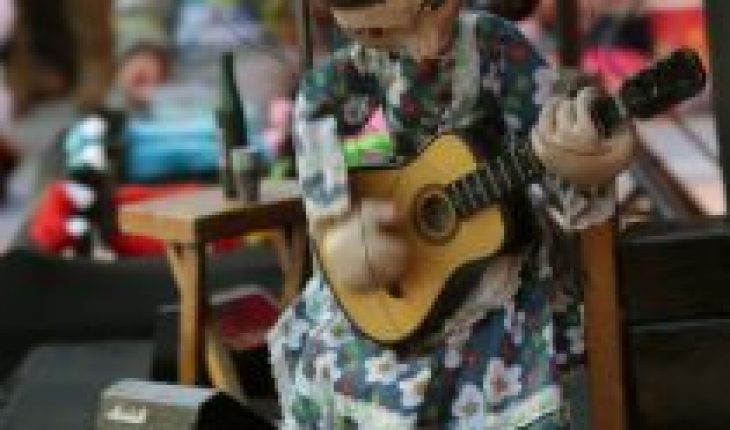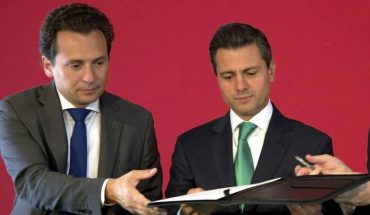
A new controversy has broken out between the Ministry of Cultures and the industry’s guilds, following the end of the historic Other Collaborating Institutions (POIC) Programme, an issue that is also of concern to “cultural banking” in Parliament, because this misguided decision would further aggravate the crisis in the sector, already hit by confinement.
The program, created in 2016, ensures continuity to 48 important cultural entities in Chile, with 70% located in regions. Among them are entities as diverse as the Ictus Theatre, the Alameda Art Center, the Victor Jara Foundation, the Circus of the World, the SACO art festival and the Valdivia International Film Festival.
The authority’s unconsultant decision will end in 2021 with a cut of more than 10%, so in organizations – mostly emblematic and long-standing – there is uncertainty about 2022, as these are key baseline financing for operation. For the same reason, there have been several meetings between the guilds and the government, whose objective has been to try to reverse the decision. However, so far, despite the sending of formal letters to the authorities, there has been no progress and organizations remain very concerned about the future and its continuity.
“It is regrettable how these decisions are made and reported in an overlapping and partial manner. Authorities report in half, say the program is maintained, when it is completely changed; and that expands, when it’s not. Public policy decisions must be transparent,” said Senator Yasna Provoste (DC).
Investment in culture as part of the general budget currently reaches 0.34%, far from the 2% recommended by UNESCO.
Alejandra Jiménez, director of Circo del Mundo, recalls that the fund was born in order to provide basal financing via glosa to long-standing organizations, many of them unique in their kind.
In 2020, all 48 entities are allocated funds ranging from $27 million (Osorno Reader Center) to $109 million (C.C. Wallmapu Film Festival), totaling $3,751,283,064, an average of $78 million for the entire year.
However, by 2021 they will get $3,089,508,544, or $661 million less. This way, they will receive on average $64 million.
“The only money that the state actually spends for culture, is this one with which it finances the corporate social responsibility programs of large companies, through the Cultural Donations Act,” criticizes Dagmara Wyskiel, head of the SACO festival. “These policies make us increasingly dependent on entrepreneurs. It gives us the impression that this is the goal,” he adds.
Fernando Lataste, Executive Secretary of the Valdivia Film Promotion Center, laments that the worst thing about this loss of funding “would be to weaken our management plan and the team, if we don’t win this year’s POIC we would be in serious trouble a big setback in all the advanced, this program finances the activities related to exhibitions in communes , seasonal festivals, our scientific dissemination programs, our work in training with technicians from communes, our workshops in schools and kindergartens”, etc.
New requirements and centralism in MRI
The Ministry noted that the programme will continue through its merger with other Funds, but in reviewing the new requirements and mechanisms set out in the new proposal, the entities learned of new conditions very different from the previous ones, according to a statement from the cultural bench.
The new format modifies requirements, amounts and operating logic, as well as centralizing resources for cultural development in the Metropolitan Region by reducing those for the regions from 70% to 50%. It also incorporates for-profit institutions as beneficiaries of public funding.
“The amendments point to the ordering of the financing system to Cultural Organizations,” said a source of the Ministry. “The amounts should have been adjusted for greater coverage. From the Collaborative Cultural Organization Support Program, a Special Call for Support for Cultural Spaces was erected, which aimed to finance part of the management plans of organizations that were in danger of closure from the health crisis,” he adds.
From the Ministry ofthey note that the initiative was reformulated under the name of the Collaborative Cultural Organization Support Program (PAOCC), which merges the Programs for strengthening Collaborating Cultural Organizations and that of Other Collaborating Institutions (POIC). Organizations ensure that the PAOCC does not give any certainty of continuity in public support.
“This was part of a process of reordering programmes that support cultural organizations and spaces, in order to form, in the medium term, a robust and integrated support system, avoiding duplication and addressing uncovered needs,” an official source said.
The new programme, the same source adds, captures the experiences of its predecessors, allocating a total of more than $7.2 billion for its various modalities, as well as concentrating, ordering and providing long-term support to its beneficiaries, providing financing that exceeds annuity and enabling management plans to be implemented over a two-year horizon, in order to meet one of the sector’s ongoing demands in relation to the impossibility of long-term planning. Exceptionally for this year, in the context of the crisis situation, a special modality was created within the Call for PAOCC for IIC organizations to postulate.
The POIC already subjected organizations to a number of requirements, such as monthly and 16th-monthly surrender, management plan compliance, evaluation visits, and two activity reports. If this were met, the fund was renewed for another year. A significant part of the 48 organizations dated back to 2016; 12 new organizations were incorporated in 2020.
Cantate explains that “from various places, in writing and in panels mentioned the concern about the term of the program, but there was never a space to discuss it and less know details of the new design that was presented. Personally I made several inquiries in the previous process and I was told that nothing could be known until the bases were there, everyone knows that when “they are the foundations” there is nothing to do, internal administrative processes have passed, legal, in contraloria etc, it is impossible to go back, besides this always happens with the deadlines above.
The imposition of Russian roulette
The manager of the Cultural Corporation Artists of Steel of Concepción, one of the entities favored by the POIC, Arnoldo Weber Alvarez, recalls that this program from its origin had as one of its objectives to reduce the gap of the great inequality between the resources allocated to regions compared to those allocated in the Metropolitan Region.
In this sense, the POIC strongly aimed at the continuity of the projects, which allowed organizations to be projected over time and not to be exposed to concursability. In this way, the contribution to these institutions strengthened the artistic, cultural and heritage work they carry out in the territory and in their respective communities.
This link allowed the implementation of a local cultural policy benefiting more than 1.6 million people directly in 168 communes of the country, linking more than 1,600 educational establishments and contributing to the employability of about 2,000 people in the cultural sector, with networked and collaborative work among 800 cultural organizations in the country.
“In this way the importance of the program is directly related to the access and participation of citizens throughout the country,” says Arnoldo Weber.
“It was the only program in the history of the institutionality of culture that ensured some continuity in the management of organizations backed by their trajectory, which should not be annually subjected to an exhausting and arbitrary contestable system. The state should support the growth of quality and long-breath programs, however under populist logic it opts for cyclical Russian roulette,” said Dagmara Wyskiel.
Criticism at the end of the program
“I think it is an irresponsible decision by the Ministry of Cultures,” said Deputy Amaro Labra (PC), former chairman of the Committee on Culture in the lower house, who proposes to maintain the POIC so as not to further aggravate the crisis in the sector, severely hit by confinement.
“I don’t understand why they have to re-enter the competition logic, institutions they have demonstrated with a management plan and positive indicators, delivering benefits to the community and its territories,” he said, warning that otherwise many will have to close.
Senator Provoste similarly demonstrated. “It is another bad and inexplicable decision of the Ministry of Cultures. This program had managed to evolve from the traditional logic of project concursability, towards the idea of givingustentability to institutions that had demonstrated the ability to manage and implement solid projects. This step is indispensable in the cultural sector. The concursability was right and its timing as the only mechanism for allocating resources, but today it is not sustained and it is required to diversify the mechanisms and instruments recognizing the differences in projects, and institutions and various state of development,” he said.
Wyskiel also rates the end of the program as “indecent” and adds that, with this, “to the world of culture, the government spat in his face.” “I find it a regrettable misaffle,” Weber agrees, first because making the changes at such difficult times for the cultural sector resulting from the social outburst and pandemic caused uncertainty and bewilderment in the organizations that had been working on this programme for five years.
“Secondly, these changes were not sufficiently justified by the Ministry and we were not convened or consulted for these changes, ignoring the consequences they will have on the territories and their communities,” he warned.
Weber also criticized the exclusion of Municipal Cultural Corporations, “since these are the ones that have the most close to the beneficiary communities and with the most access to vulnerable audiences. In contrapoint of the above, for-profit corporations are incorporated, a situation that has caused inconvenience and which have no reasonable justification.”
“The end of the show is brutal,” added Alejandra Jimenez. “For more than 90% it would involve the closure of organizations. This is the case of the Circus of the World”, the only professional circus school in the country.
“This responds to a government policy of having no impact on art and culture, of understanding its relevance in the development of people and a country,” added Jiménez, who lamented “the coldness” with which The government of Sebastián Piñera has faced the demands of the sector and accused the Minister of Finance, Ignacio Briones, of “not bringing together the work we have done”.
Impact on regions
Weber warned of the serious consequences of the end of the programme, as most organizations benefiting from this programme base their development projections on these allocations.
“In this sense it will have a great negative impact on the development of territorial work, on the access and participation of communities, and on the continuity of emblematic projects that each organization develops. As well as have a great negative impact at the level of the organized structures of each of these institutions, affecting the employability and job security of the sector,” he said.
In his view, this decision repeated and widened the gap between the centre and the regions of the country. “These measures speak of the disrecognise of work being done in regions. In short, it is a total disrecognise of the regional contribution and territories to the cultural development of the country,” he said.
“Many organizations favored by the program had designed long-term development strategies, which is thwarted by this measure. And once again those affected are the regional community that will be prevented from accessing cultural goods so essential to human development,” Weber said.
The regional consequences were also criticized by Senator Provoste, for whom, however, this decision is consistent “with this government going in the opposite direction of the changes the country wants and social and political phenomena,” as the necessary decentralization process that will take a key step with the democratic election of regional governors , which will take place in April next year.
The Ministry of Cultures, however, insisted that the PAOCC also has selection criteria that establish regional quotas; that is, according to the convening bases, the selection of certain lines and modalities should be carried out ensuring that a percentage of the available resources are allocated to organizations in regions other than the Metropolitan. This percentage, in relation to the current Call, was 50% for the new modalities. He also assured that the continuity modality – where only organizations that are part of IIC could apply – continued with regional coverage of 70%,
For Canned, there’s nothing new. “Those of regions know this in culture, as in other areas, there is a high expenditure near the areas where power moves is centralism, it happens not only with Santiago in regions also exists. POICs were strategic to minimize this characteristic of the country, at least in the cultural sphere. Finally, the feeling is that 5 years ago we were invited to walk together and now after making a good and long journey, where nunwe were told that something was not working or was wrong on the contrary we always feel well evaluated, we are starting again in worse condition and with quite uncertainty, the idea was the opposite.”
Alternative proposals
To address this complex situation, Mr Labra proposes that the 48 collaborating institutions that had been growing since 2016, and of proven fruitful management, continue the allocation, without the 10% cut.
“It should be considered that these agencies must submit a rigorous report with their management plan every year. When assessing, the Ministry of Cultures should usually increase the budget. It makes no sense to maintain the same resource delivery for 2016, let alone now the 10% reduction.”
The legislator insisted on maintaining resources for these renowned and proven institutions that are a platform for development and work for many artists in our country.
“Why cut a project that works well? Why increase the cultural crisis?” he asks.
Your position coincides with Senator Provoste. “The programme should be continued under current conditions and not recast with other initiatives targeting institutions with lower levels of development. Of course, over time, institutions that achieve further development should be included in the POIC, with the consequent increase in resources. But none of that makes MINCAP’s decision,” he concluded.





